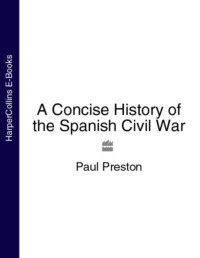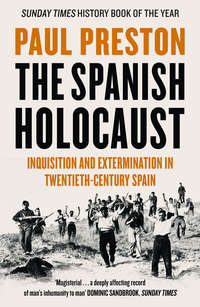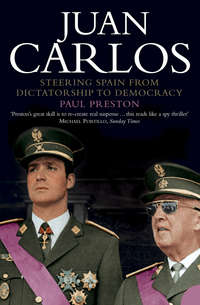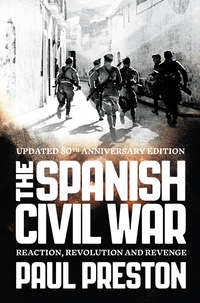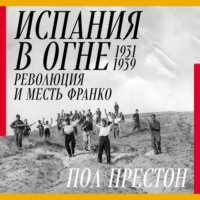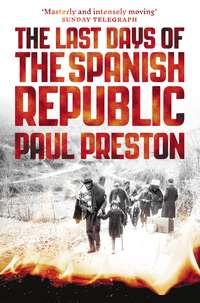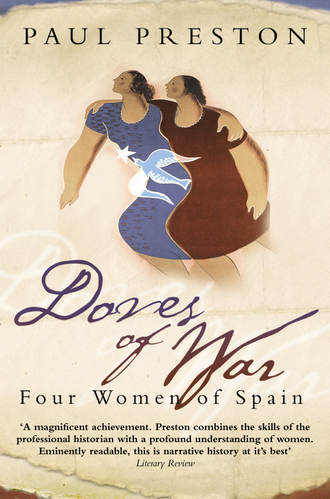
Полная версия
Doves of War: Four Women of Spain
In early March, Prince Ali appeared in London. Revealingly, Pip refused his dinner invitation to spend time with her father. ‘Papa and I get on so well. We talk for hours every evening. He knows so much about every subject. I wish I had his brains.’ When she did go to see Princess Bea, she found her heartbroken by the death of her son Alonso. Pip got news of her beloved Touffles who, as befitted the son of a German princess, had joined Hitler’s Condor Legion and was now flying as an observer in German bombers. As always, being reminded of Touffles provoked her into a flirtation. At a society hostess’s dance, she ‘spent most of the evening dancing with crazy Francis Cochrane to whom I got engaged just for fun. He is great fun and dances quite well. So now I have a fiancé for a change. I shall break it off again soon.’ Nothing more was heard of him thereafter. Her social life was more of a whirlwind than a roundabout. When she was not in the country, at the races or at Brooklands, she took every advantage of what London had to offer. A typical day would see her rise late, and after breakfast, practise fencing or do some work in relation to the small stud farm at Chirk. She would then lunch at the Ritz or the Savoy with friends. Lunch would be followed by shopping, a dress fitting, the hairdresser and then tea with some family friend. In the evening, she would attend one or more cocktail parties, a dance in the home of some society hostess or the theatre, the ballet or the opera, then dinner, perhaps at Quaglino’s or the Savoy Grill, then on to the Café de Paris or a nightclub. She attended a number of legendary operatic occasions, including Eva Turner and Giovanni Martinelli singing Puccini’s Turandot at Covent Garden. Dancing until the early hours of most mornings, she met lots of attractive men but nothing came of her flirtations with them.35 When, on 24 March, she finally got a letter from Touffles requesting her photograph, she pranced down the passage ‘singing at the top of my voice’. Already thinking of going to Spain, she started Spanish lessons.36
The ceaseless round of fun was beginning to pall when her life was changed by a chance conversation with her mother – ‘so nice the way she leaves me to myself, no advice, no orders, just perfectly sweet’. On Easter Sunday, 28 March 1937, she wrote: ‘This evening after dinner we began to talk about Spain and Mama suddenly said that Gabriel Herbert was out there doing nursing and smuggling medicines etc. I said, ‘‘God I wish I was’’ so Moke (Monica FitzClarence, a friend of Margot’s) said ‘‘Why don’t you?’’ I explained I would have long ago if I had thought for a moment Mama would let me.’ To her astonishment, her mother said that she would give Pip permission if she produced proper plans mapped out and aimed to do important work out there – ‘but I must find out and arrange it myself and she can’t help me. So now I must see Mrs Herbert and Princess Bea and see what I can do to help. My chance at last I hope!’ Margot had not expected such a burst of focused energy and was horrified. She regarded Pip as ‘both frivolous and pretty. She loved hairdressers, young men and cream buns. She would go to several cinemas in one afternoon and I deplored that she would not face up to anything serious.’ The Spanish Civil War was rather too serious even for Margot. Pip herself was enthused by the idea of going to Spain and determined to overcome all obstacles. She was desperate to be of some use. ‘It is a bore to look so young and silly, it will be very difficult to make anyone think I really mean it and am capable of doing it.’ She now asked her mother to let her take first-aid classes as well as Spanish lessons. She also spoke to Mrs Herbert and her daughter Laura, who was soon to be married to Evelyn Waugh. Presumably on the basis of communication with her sister, Gabriel, Laura told Pip that ‘it was awfully difficult to get in now.37
Perhaps she was inspired by her mother’s earlier example running a hospital in Egypt. It is an extraordinary coincidence that the mother of the only other British woman to volunteer to work for Franco, Gabriel Herbert, had also worked in that Egyptian hospital. Gabriel Herbert herself was a competent and energetic young woman. In September 1936, she had gone to Burgos and returned to London with a list of medical supplies requested by the Junta. She then returned to Spain with an ambulance. With a second vehicle sent in November, it became the Equipo Anglo-Español Móvil de Servicio al Frente. Gabriel Herbert herself acted as an intermediary between the medical team in Spain and the London committee of the Catholic Bishops’ Fund for the Relief of Spanish Distress. Pip’s reference to her ‘nursing and smuggling medicines’ was a misunderstanding of Gabriel’s activities in taking supplies into Spain.38
Pip’s Spanish progressed quickly. Nevertheless, while she tried, in a desultory fashion, to find out more about going to Spain, she began to see a lot of ‘the most gorgeous tall hero called John Geddes’, a fashionable young man-about-town. They danced together, got drunk together and talked about their respective broken hearts, she about Touffles and he about a girl named Ann Hamilton Grace who had ditched him. They walked their dogs and within a couple of weeks of knowing him, she could write: ‘I dote on him and hope I will see him again soon.’39 By 13 April, they were lovers. She found the experience physically painful ‘but it was fun’. ‘I still don’t feel even a twinge of conscience or remorse. And oddly I don’t like him any more or less.’ After sleeping with him a second time, she wrote: ‘He is an absolute darling although definitely rather a cad.’ She was taken entirely by surprise, at the end of April, when he asked her to marry him. She was emboldened to refuse after being told by her cousin, Charmian van Raalte, that she had had a letter from Touffles ‘who is livid because I have not written for ages’.40 She was also distracted by Gaenor’s coming-out dance at Seaford House which was to be attended by 650 people including the Duke and Duchess of Kent. At dinner beforehand, she was delegated to look after the then seventeen-year-old King Faroukh of Egypt whom she thought ‘a dear and we got on like billyoh’. Rather alone in London, he was taken by Pip to Regent’s Park Zoo, the Tower of London, St Paul’s Cathedral and several theatres.41
The big event was the coronation of George VI on 12 May. Pip was as bedazzled by its magnificent pageantry as the rest of the world. She attended the first court ball of the new reign which she found ‘heaven’. On returning home ‘I put on Mama’s tiara and earrings and looked too regal for words. How I wish I had one.’42 She had started writing to Touffles again and, on the strength of hearing that he might come to London on leave, had begun to diet. Her diary at this time began to have increasing references to her hating ‘that filthy smelly town London’ and even ‘I hate social life.’43 Frantically hopeful of seeing Touffles, Pip was further reminded of the ongoing Civil War on 1 June. Two days before, the German navy had mounted a large-scale artillery bombardment of the Mediterranean city of Almería in southeastern Spain. Coming out of a newsreel with some friends, Pip ran into a Communist demonstration chanting ‘Stop Hitler’s War on Children!’ Nan Green was among the demonstrators. However, she was discouraged when, accompanying her mother to lunch at the Herberts’, she met Gabriel who ‘was very interesting but convinced me more that there is no point in my going out there as a nurse or anything else. Damn it.’44
Just when she was on the verge of abandoning thoughts of Spain, Touffles turned up unexpectedly in London. On Wednesday 23 June, she wrote: ‘He rang me up this morning and we lunched out together at San Marco and spent the afternoon buying records and talking. He is exactly the same as he always was and I like him as much as I always did.’ The next day he broke a date to take her to an air show. She now admitted to herself what had been obvious for some time. ‘I can’t pretend to myself any longer. I know I am just as much in love with him as I always have been for the last three years. Oh God what hell it is, all so pointless, just lack of control.’ On 29 June, he flew back to Spain from Croydon. After seeing him off, Pip was desperately miserable.45
However, for all her distress at seeing him go back to the war, his visit had reawakened her interest in Spain. Her notions of what was going on there derived almost entirely from Princess Bea ‘who really knows what she is talking about. I simply adore her and admire her enormously for her courage about everything.’ Her new-found determination to go to Spain roused her from her misery. Her hopes were raised on 6 July when she heard that she had passed her first aid and nursing exams with high grades. Nevertheless, bored with her social life in London and still unsure how to get to Spain, she fell into a limbo. ‘I am in a very odd sort of numb way. I don’t mind much what I do or where I go as long as it is more or less peaceful.’ She was concentrating on her Spanish lessons with some dedication. On 22 July, without much expectation of a helpful reply, she wrote a long letter to Touffles asking him how to go about getting a posting in Spain.46 Her interest in Spain was further fired by a book by an aviation journalist, Nigel Tangye, Red, White and Spain. Tangye had got into Nationalist Spain on the basis of letters attesting to his pro-Nazi sympathies. His entirely pro-Nationalist account probably confirmed for her things that she had already been told by Princess Bea. After lurid tales of Red atrocities, it related that, if the ‘Reds’ won, there would be a ‘Communist State, complete suppression of the Church, mass-murder of landowners and employers, officers and priests, and abolition of all freedom’. Tangye asserted that ‘The Government, or Red, forces are entirely controlled and supplied by Russia.’ Coincidentally, Tangye travelled for part of his time in Spain with a cavalry officer, the Barón de Segur, whose son was that same José Luis de Vilallonga who would later denigrate Pip’s diaries.47
Things began to move a little faster when Prince Ali returned briefly to London. At dinner, Pip told Princess Bea of her firm intention to go to Spain and asked for her help. Pip’s new-found determination and recently acquired nursing qualifications impressed the Infanta that she was serious. Accordingly, she concluded that Pip could be useful and undertook to find out where she should go as well as getting someone with whom to practise her Spanish. Pip was so heartened that she determined once more to ‘get thin and fit and learn more Spanish’. She went up to Chirk in her Super Swallow Jaguar. She found her mother was making plans for her twenty-first birthday party on 16 November. Accordingly, Pip reminded her of her Spanish project and Margot van Raalte was far less insouciant than she had been three months earlier. Now, she was concerned about her daughter’s safety in the midst of so many men and decided to write to Princess Bea. Pip, confident that she could bring her mother around, had begun to read another blood-curdling account of Nationalist heroism, Major McNeill-Moss’s The Epic of the Alcazar, which she found ‘very interesting and exciting’. McNeill-Moss’s book consisted of a romantically heroic account of the Republican siege of the Nationalist garrison in the Alcázar of Toledo from July to September and a notoriously mendacious whitewash of the Nationalist massacre of the civilian defenders of the town of Badajoz on 14 August 1936.48
The big leap forward in Pip’s plans came when Princess Bea replied to Margot Howard de Walden’s letter. Her enquiries had revealed that the level of confusion in Nationalist Spain was such that nothing for Pip could be organised from London. However, a change in her own circumstances opened the way for Pip. Prince Ali had been bombarding Franco with pleas for an active role in the fighting. Through the intercession of General Kindelán, the head of the Nationalist air force and the most prominent monarchist among the Nationalist generals, his wish had finally been granted. Accordingly, Princess Bea was going to return to Spain in the autumn to be near her husband’s air base in the south. To Pip’s intense delight, the Infanta proposed that she accompany her, assuring Margot that she would look after Pip ‘as if she were her own daughter’. Under these circumstances, her parents did not object. Half a century later, her brother was still perplexed by their lack of anxiety.49
Pip’s girlish joy was all too understandable since she was not only going to Spain but proximity to Touffles was virtually guaranteed. ‘Princess B really is a saint,’ she wrote on 8 August. ‘It will be so nice to go with her.’ She had little notion of the horrors that she would encounter. On 26 August, she wrote: ‘What an adventure though a gruesome one.’ With her Spanish future apparently resolved, she devoted much of the summer at Chirk to riding, playing tennis and learning golf. Princess Bea arranged a Spanish teacher, named Evelina Calvert, and Pip set herself a tough schedule in preparation for the journey. She was ecstatic when she learned that Princess Bea planned to take her to Sanlúcar by car on 22 September, via Paris, San Sebastián, Salamanca and Seville.50
Her preparations became frantic – increased efforts to improve her Spanish and some half-hearted dieting which got her weight down to 12 stone 3 pounds. A daily round of shopping, visits to the hairdresser (on one occasion to have her eyelashes dyed), inoculations, arrangements for her passport and visa for Spain. This included a visit to the Foreign Office where she was interviewed by William H. Montagu-Pollock, one of the four men with principal responsibility for British policy on Spanish affairs. That she was received by a functionary of such eminence was an indication of her social, if not her political, importance. On 18 September, she went with Princess Bea to Portsmouth to meet ex-Queen Victoria Eugenia of Spain. As the day for her departure drew near, she began to worry – ‘I am almost frightened of going to Spain now’ (19th); ‘Somehow now the great moment has come, I feel almost scared and rather depressed’ (20th); ‘I wish I knew exactly what I was going to and where … I still can’t really believe that this time next week I shall be in the middle of war. A strange and exciting life.’51 What a contrast with Nan Green who knew rather more, from her husband’s letters, about the hell into which she was going.
Pip’s reasons for going to Spain had little to do with the real issues being fought out there. She lacked the ideological conviction of either Nan Green or even Gabriel Herbert who was a devout Catholic and believed that Franco’s war effort was a crusade to save Christian civilisation. According to her sister Gaenor, Pip’s views were ‘a simple expression of support for her friends, and therefore pro-monarchy and anti-Communist’. In the case of one friend, Ataúlfo de Orléans Borbón (Touffles), much more than friendship was at stake. There can be no doubting that Pip went to war for love. It helped that her parents had been much taken by Prince Ali’s repetition of the canard that the military had rebelled in July 1936 because a Communist takeover in Spain had been imminent. However, her plans would probably have come to nothing if her adored Princess Bea had not taken a hand. Pip’s eventual placement as a nurse would owe much to the Infanta’s prominent position in the Nationalist organisation known as La Delegación Nacional de Asistencia a Frentes y Hospitales, a patrician welfare operation headed by the Carlist María Rosa Urraca Pastor and largely run by monarchists.52
Complete with trunks and hatboxes containing the accumulated fruits of her last months’ shopping trips, Pip left England in some style in Princess Bea’s chauffeur-driven limousine on 21 September 1937. At Dover, they were met by the station master in his top hat and were swept into a private compartment on the boat train.53 Then it was on to Paris for some more shopping and a visit to the World’s Fair. This was the great exhibition for which Picasso’s Guernica was commissioned by the Spanish Republican Government.54 Interestingly, for someone just off to the Spanish Civil War, Pip did not see it, instead spending her time at the German and English pavilions. On one side of the Pont d’Iéna on the Rive Droite of the Seine, the German pavilion, designed by Albert Speer, glaring at its equally pugnacious Soviet rival, was an architectural representation of Nazi aggression. Huge, thirty-three-feet-high statues of muscle-bound Soviet heroes strode triumphantly forward, their way apparently blocked by the naked Teutonic heroes guarding the German design, a huge cubic mass, erected on stout pillars, and crowned by a gigantic eagle with the swastika in its claws. For Pip, this was ‘the best’. The British pavilion symbolised the tired gentility of appeasement. The British displays were of golf balls, pipes, fishing rods, equestrian equipment and tennis rackets while the German and the Italian were of military might. Pip thought the British pavilion ‘very bad’.55 She and Princess Bea were then driven on 23 September to Biarritz where Pip was delighted to discover that she could understand most of the Spanish that she began to hear. They were received by Sir Henry Chilton, the British Ambassador to Republican Spain. The pro-Nationalist Chilton had been on holiday in San Sebastián when the Civil War broke out and had refused to return to Madrid. With the aid of the French Ambassador to Spain, they managed to get across the frontier to San Sebastián on the following day. With the beautiful resort bathed in sunshine, it was like being on holiday.
The unwarlike nature of the trip continued when she and Princess Bea were joined for dinner by one of General Alfredo Kindelán’s sons, Ultano. Pip went to the cinema with him, then for a long walk and a mild flirtation – ‘If it had not been for the fact that he has known Ataúlfo and Alvaro all his life and would certainly have told them I would have had a spot of fun but I would have been ragged for the rest of my life so I refrained and bade him a polite goodbye at the hotel.’ Pip saw her first sign of the war when they drove to Santander along the route that the Nationalists had taken on their campaign in the north earlier in 1937. They met Touffles, ‘much thinner and very sunburnt … Madly attractive.’ He went out of his way to talk to her and she admitted that ‘alas I still like him more than I want to’. He told her about the capture of Santander and took her to the German airbase from which he flew as a navigator. ‘They fly huge Junkers. His is a beauty with two engines and a retractable undercarriage.’ This means that he must have been flying in the experimental Junkers Ju 86D-I. It was a curious time for Pip, a mixture of tourism and initiation into the war. They visited the beautiful medieval village of Santillana del Mar and La Magdalena, the great English-style royal country residence on a hill overlooking the bay of Santander. ‘It had been ruined inside by the Reds and is still being cleaned up by Red prisoners who are camped in the park. They all looked well and happy.’56
Sad to leave Touffles, she continued her journey on 28 September, moving on to Burgos where she toured the great cathedral, then onto Valladolid and to Salamanca. Pip was entranced by Spain, the only drawback being the fleas awaiting her in every hotel bedroom. She and Princess Bea stayed with General Kindelán. Kindelán was a man of great rectitude and austerity. Nevertheless, to Pip’s young eyes, oblivious to his moral and political merits, he was just ‘rather fat and sloppy’. At the Grand Hotel in Salamanca, she caught a glimpse of the ‘stunning looking’ Peter Kemp, whom she knew vaguely from London. In a Carlist regiment, he was one of the very few English volunteers on the Nationalist side. On 1 October, the first anniversary of Franco’s elevation to the headship of state saw a major display of pageantry. Pip was elated by being able to witness history being made – ‘a parade of soldiers led by the Moors in their wonderful coloured cloaks on Arab horses with golden trappings. The leaders rode white Arabs with silver hooves and gold-embroidered medieval trappings which looked beautiful with the men’s white and orange cloaks, behind them were men in green cloaks on black horses got up the same but with golden hooves.’ Her concern that the Nationalist forces might be antiquated was redressed when Álvaro, Princess Bea’s eldest son, took her to inspect the Italian Savoia Marchetti tri-motored bombers at his air base. This was the Base Aéreo de Matacán, built in October-November 1936. Afterwards Álvaro took her to see the fierce fighting bulls at the estate of Antonio Pérez Tabernero, a bull-breeder friend of the Kindelán family.57
On 2 October, she was thrilled when Touffles unexpectedly showed up in Salamanca although her delight was tempered when he spent their brief time together teasing her about her figure. She also wrote to her father and asked him to buy her a Ford 10 and have it sent to Gibraltar. ‘I hope you do as I must have a car if I am here alone.’ On 4 October, they left Salamanca and, after a spectacular journey south through the harsh and arid hills of Extremadura, they reached Sanlúcar de Barrameda – the family’s Palacio de Montpensier having been returned to Prince Alfonso by Franco. Pip found its crazy mixture of styles hideously ugly but fascinating. Prince Ali, now a lieutenant colonel in the Nationalist airforce, was stationed at Seville and so was often able to visit his home. Inevitably, she imbibed the family’s views on the Reds.58
By mid-October, everything had been arranged for her to go and stay with the Duquesa de Montemar in Jérez while attending a nursing course at a hospital there. Lord Howard de Walden cabled that her car would be sent to Gibraltar in a few days. When it arrived at the end of the month, she thought it ‘heaven. Black with green leather inside and a dream of beauty.’ At first she found the hospital ‘splendid fun’ and ‘not in the least disgusting’. The bulk of the patients were Moorish mercenaries whom she found ‘perfectly sweet but like a lot of children and rather dirty’. When her course proper began, she was shocked by the appalling wounds that had to be treated. ‘I did not feel sick at all but afterwards when I left the hospital I kept seeing the wounds all day and hearing the screams of agony.’ She was fully aware that she would see far worse sights at the front. ‘I understand now why nurses are so often hard and inhuman.’ While in Jérez, she got gathered up in the local social whirl. She was mortified when it was suggested to her by her hostess, the Duquesa, among others, that it was obvious that she was in love with Ataúlfo and ought to marry him. This was not because the idea displeased her. Quite the contrary, but she was embarrassed that her infatuation should be so obvious. Despite her emotional preoccupations, she made good progress with her nursing skills. She loved the work and was beginning to be able to witness without distress the most hair-raising wounds being treated.59
There were now two parallel strands in her life. One was training to be a nurse at the front and the other was her deepening passion for Touffles. When he returned to Sanlúcar and telephoned to invite her over, she skipped her classes to go and see him, ‘hopping with life and merriment’. When she got back to the Orléans household, her happiness knew no bounds. The life of the well-to-do in the Nationalist zone had no equivalent in the Republican ranks. Touffles arrived with nine Luftwaffe pilots for a bout of entertainment and relaxation that included swimming, a flamenco fiesta at one of the Jérez bodegas and a visit to a stud farm for Arab steeds. There was then a trip to Gibraltar to collect Pip’s car and to do shopping, during which she bought a white kimono embroidered with golden dragons. She spent a lot of time with Touffles drinking and dancing. After one late night, she wrote: ‘I adore Touffles more every day and only wish I could just stay with him for ever.’ He bought her a radio in anticipation of her imminent twenty-first birthday. It was to accompany her throughout the Spanish Civil War. Loaded with shopping, including 3,000 cigarettes, she drove her new car back into Spain. Her social position ensured that she had no difficulty getting through the border control. ‘They had been warned to expect us and refused to let us declare anything. So we just sailed through with no trouble at all. It was very nice of them to be so kind as it saved a packet of trouble as my car has no triptyque [a document permitting the transit of a car from one country to another] or insurance, and I have no licence.’


